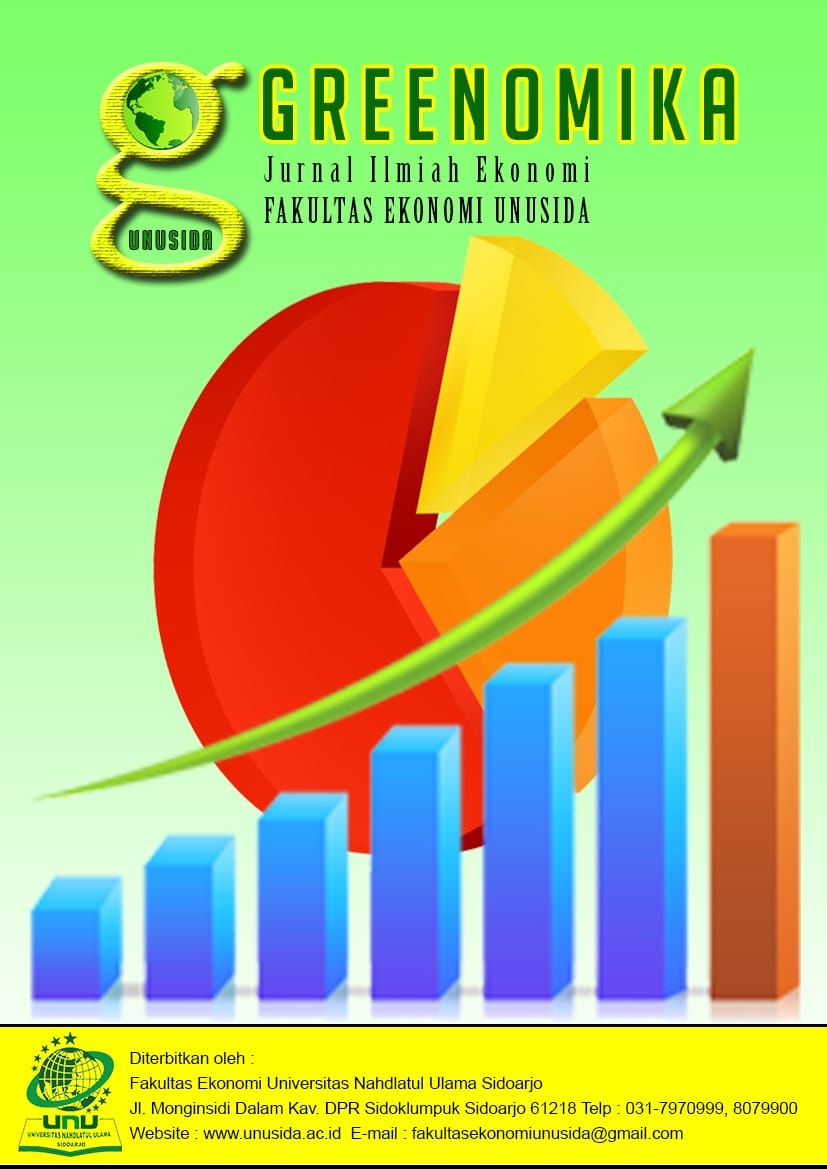Business Development Strategy for Increasing Sales in Food Businesses in Jombang Regency
DOI:
https://doi.org/10.55732/unu.gnk.2025.07.1.8Keywords:
Business Development, Meatball Business, Jombang Regency, SMEs, Marketing StrategyAbstract
Meatball business in Jombang Regency has significant growth potential due to its popularity among both residents and visitors. This research aims to explore and evaluate effective strategies for enhancing meatball enterprises in the area. Employing a mixed-method approach, the study integrates qualitative and quantitative data obtained through surveys, interviews, and market analysis. The findings reveal that key success factors for meatball businesses in Jombang include product quality, unique selling propositions, customer service, and marketing strategies. The study emphasizes the need for product innovation, the utilization of digital marketing, and strategic collaborations with local suppliers and distributors. Furthermore, it highlights the importance of government support in offering training and financial aid to small and medium-sized enterprises (SMEs). Recommendations for meatball business owners involve improving product differentiation, using social media to expand reach, and participating in local food events to boost brand recognition. This research provides valuable insights into SME development in the food industry and offers practical strategies for entrepreneurs aiming to succeed in Jombang Regency's competitive market.
References
Arfai, W., Manokwari, D., Riantoro, D., & Aninam, J. (2021). Analisis SWOT untuk Strategi pengembangan obyek wisata hutan bakau kormun wasidori arfai di manokwari. Lensa Ekonomi, 15. https://doi.org/https://doi.org/10.30862/lensa.v15i01.146
Briawan, D., Khomsan, A., Alfiah, E., Nasution, Z., & Putri, P. A. (2023). Preference for and consumption of traditional and fast foods among adolescents in Indonesia. Food Research, 7(4). https://doi.org/10.26656/fr.2017.7(4).156
Cresswell, J. W. (2014). Research Design Pendekatan Kualitatif, Kuantitatif, dan Mixed. In Yogyakarta: Pustaka Pelajar.
Farrokhnia, M., Banihashem, S. K., Noroozi, O., & Wals, A. (2024). A SWOT analysis of ChatGPT: Implications for educational practice and research. Innovations in Education and Teaching International, 61(3), 460–474. https://doi.org/10.1080/14703297.2023.2195846
Faruqi, A. H. Al. (2020). The Effect of Servant Leadership on Establishment of Organizational Citizenship Behavior (OCB) Through Organizational Commitment of Employee in PT. Awam Bersaudara. Airlangga Development Journal, 3(2), 180. https://doi.org/10.20473/adj.v3i2.19304
Hasyim, S. H. (2022). Analisis Kelayakan Usaha ditinjau dari Aspek Pemasaran (Studi Kasus pada Warung Bakso Bagus Kecamatan Rappocini). Journal of Economic Education and Entrepreneurship Studies, 3(2), 429–436.
Masruroh, A., Putri, S. M., Ichwayudi, B., & Solikin, A. (2023). Strategi Bersaing UMKM di Tengah Pandemi Covid-19 Menggunakan Analisis SWOT (Studi Kasus UMKM Arusmaya Tuban). Jurnal Manajemen Dan Inovasi (MANOVA), 6(1), 1–14. https://doi.org/10.15642/manova.v6i1.595
Miles, M. B., Huberman, A. M., & Saldana, J. (2014). Qualitative Data Analysis. SAGE Publications.
Najiha, U. (2024). Community Economic Empowerment Through Asset Based Commonity Devolopment Method (Study of the Role of Fatayat NU in Bawean Island, Gresik). GREENOMIKA, 5(2). https://doi.org/10.55732/unu.gnk.2023.05.2.6
Novie, M., & Chikmawati, Z. (2019). Pengaruh Merek dan Standardisasi Mutu Terhadap Daya Saing Produk Makanan Berbasis Umkm di Sidoarjo. Greenomika, 1(1).
Rachmadina, D. T., Saprida, S., & Satria, C. (2023). Strategi Pengembangan Usaha Dan Kualitas Pelayanan Dalam Meningkatkan Pendapatan Di Masa Pandemi Covid-19 (Studi Kasus Umkm Bakso Seitalo Di Kota Palembang). Jurnal Ilmiah Mahasiswa Ekonomi Syariah (JIMESHA), 2(2), 133–138. https://doi.org/10.36908/jimesha.v2i2.142
Riantoro, D., & Aninam, J. (2021). Analisis SWOT untuk Strategi Pengembangan Objek Wisata Hutan Bakau Kormun Wasidori Arfai di Manokwari. Lensa Ekonomi, 15(01), 15. https://doi.org/10.30862/lensa.v15i01.146
Safii, T. A., & Afandi, M. A. (2023). Strategi Pengembangan Bisnis UMKM Bakso Bunda Dengan Pendekatan Business Model Canvas di Mojoagung, Jombang. Jurnal Manajemen Dan Inovasi (MANOVA), 6(2), 1–18. https://doi.org/10.15642/manova.v6i2.1390
Shpak, N., Kuzmin, O., Dvulit, Z., Onysenko, T., & Sroka, W. (2020). Digitalization of the marketing activities of enterprises: Case study. Information (Switzerland), 11(2). https://doi.org/10.3390/info11020109
Sriyani, N. W. D., & Ardansyah, A. (2023). Marketing Strategy Analysis Of Consumer Purchase Interest In The Covid-19 Pandemic Laksmi Kebaya Store Lampung. BIMA Journal (Business, Management, & Accounting Journal), 4(1), 115–120. https://doi.org/10.37638/bima.4.1.115-120
Supriyadi, Fauzan, Aisyul Hana, U., & Rahman, A. (2021). Optimalisasi Pariwisata Syariah Dalam Upaya Peningkatan Ekonomi Lokal Masyarakat Madura. GREENOMIKA, 3(2). https://doi.org/10.55732/unu.gnk.2021.03.2.2
Vadana, I. I., Torkkeli, L., Kuivalainen, O., & Saarenketo, S. (2020). Digitalization of companies in international entrepreneurship and marketing. International Marketing Review, 37(3). https://doi.org/10.1108/IMR-04-2018-0129
Warlizasusi, J. (2018). Analisis Perencanaan Strategis, Rencana Strategis dan Manajemen Strategis STAIN Curup 2015-2019. Tadbir : Jurnal Studi Manajemen Pendidikan, 2(2), 155. https://doi.org/10.29240/jsmp.v2i2.664
Yanis, M. N., Mardiana, S., & Ayu, S. F. (2019). Analisis Strategi Pemasaran Tempe Kelompok Usaha Kecil Menegah (UKM) di Desa Sei Mencirim Kecamatan Sunggal Kabupaten Deli Serdang. Jurnal Agrica, 11(2), 93–111. https://doi.org/10.31289/agrica.v11i2.1808.g1681
Downloads
Published
Issue
Section
License
Copyright (c) 2025 Muhammad Mansur, Antok Supriyanto, Januar Wibowo

This work is licensed under a Creative Commons Attribution-NonCommercial 4.0 International License.
Authors who publish with this journal agree to the following terms:
Authors retain copyright and grant the journal right of first publication with the work simultaneously licensed under a Creative Commons Attribution License that allows others to share the work with an acknowledgement of the work's authorship and initial publication in this journal.
Authors are able to enter into separate, additional contractual arrangements for the non-exclusive distribution of the journal's published version of the work (e.g., post it to an institutional repository or publish it in a book), with an acknowledgement of its initial publication in this journal.
Authors are permitted and encouraged to post their work online (e.g., in institutional repositories or on their website) prior to and during the submission process, as it can lead to productive exchanges, as well as earlier and greater citation of published work (See the Effect of Open Access).















